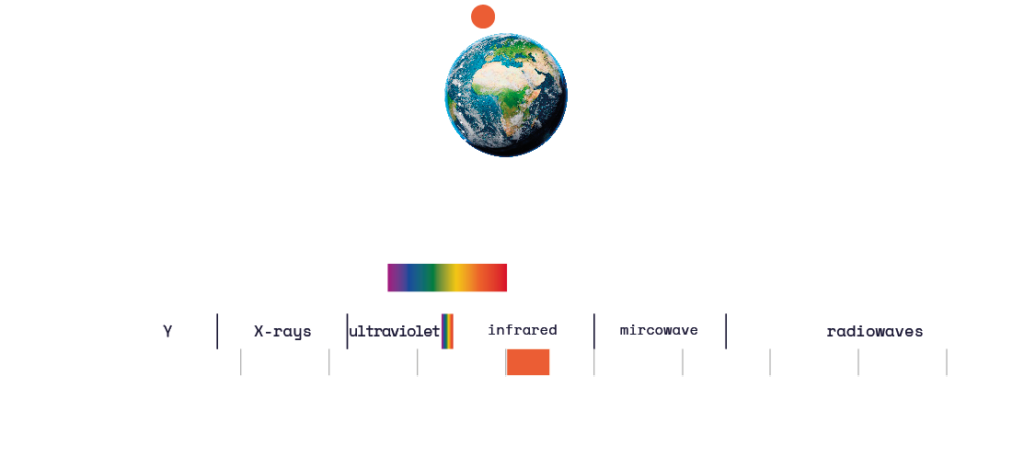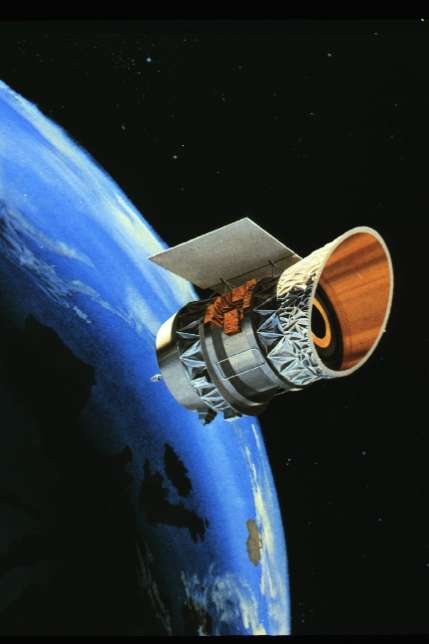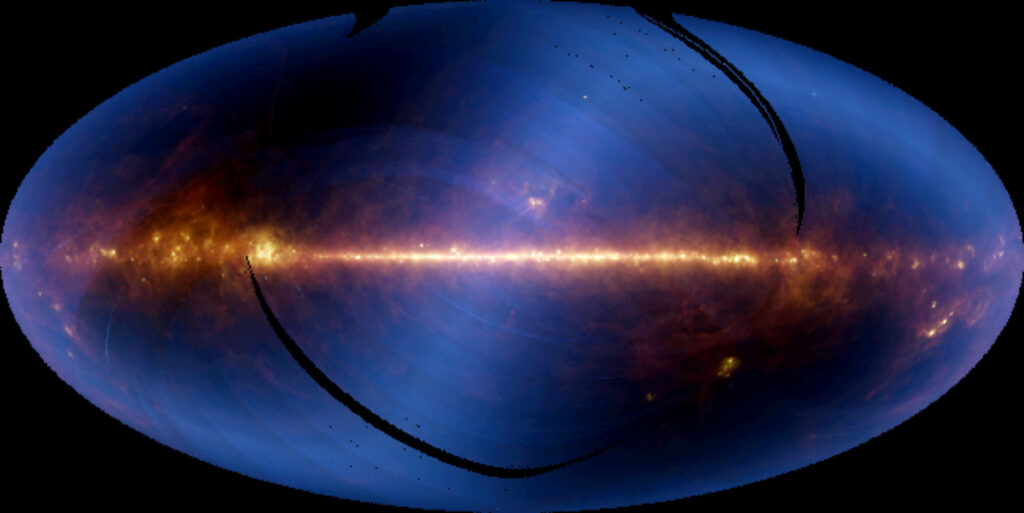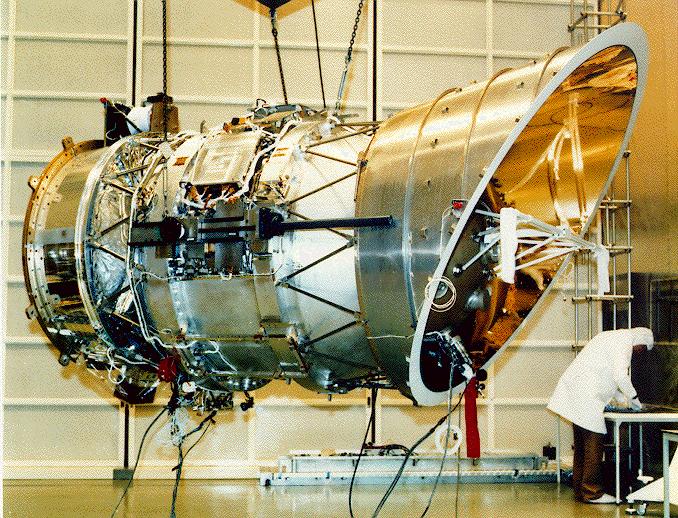| Status | Legacy |
| Lancering | 1983 |
| Ruimtevaartorganisatie | NASA / NIVR / SERC |
| Type | Infrared (12-100 μm) |
| Orbit | Geocentric (900 km altitude) |
| SRON-bijdrage aan | Low Resolution Spectrometer |

IRAS was the first space mission to map the entire sky in infrared. It did so at four different infrared wavelengths. IRAS measured about 350,000 infrared sources. The best known of these is the core of the Milky Way, which had not been observed in infrared before. The satellite’s list of discoveries also includes a disk of dust particles around the star Vega, six comets and hot dust trails in almost every direction in the universe.

SRON built the Low Resolution Spectrometer (LRS). This was sensitive to wavelengths between 7.5 and 23 micrometres, with a spectral resolution of 20 to 60. That means the LRS could distinguish colours to a precision of about 0.4 micrometre wavelength.







